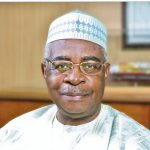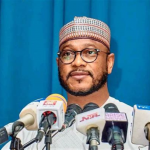
The Sahel region in West Africa is fast becoming a central hub for drug trafficking, according to a new report by the United Nations Office on Drugs and Crime (UNODC).
Released on Friday, the report indicates a dramatic rise in the amount of drugs seized.
The report noted that in 2022, authorities in Mali, Chad, Burkina Faso, and Niger seized 1,466 kilograms (3,232 pounds) of cocaine, a stark increase from the annual average of 13 kilograms (28.7 pounds) recorded from 2013 to 2020.
According to the UNODC Regional Representative for West and Central Africa, Amado Philip de Andrés,
The involvement of various armed groups in drug trafficking continues to undermine peace and stability in the region. The report identified the Sahel as a critical transit route for cocaine produced in South America and intended for European markets.
Coincidentally, the report was released amid recent news from Senegal of a record-breaking cocaine seizure worth $146 million.
Furthermore, the increase of drug trafficking into the local markets in the Sahel is causing increased consumption, said Lucia Bird, the Director of the West Africa Observatory of Illicit Economies at the Global Initiative against Transnational Organized Crime.
She said,
We’ve had reports of rising crack cocaine consumption in Agadez, Niger, driven by payment in kind.
Smaller traffickers get paid in drugs and offload it onto local markets because they don’t have the contacts in more lucrative consumption destinations.
UNODC’s report also points out a concerning trend of exchanging Moroccan hashish — a form of cannabis — for South American cocaine. Bird averred that this trend facilitates drug trafficking without cash and increases the volume of drugs moving through the region’s conflict zones.
Special Representative of the UN Secretary-General for West Africa, Leonardo Santos Simão, urged states in the Sahel region, in collaboration with the international community, to “take urgent, coordinated, and comprehensive action to dismantle drug trafficking networks.”
Read: Zamfara ban officials, others from granting media interviews without state approval
About The Author
Related Articles
Asake Sets New Billboard Afrobeats Record as Chart Presence Grows
Asake has further cemented his place as one of Afrobeats’ most dominant...
ByWest Africa WeeklyJanuary 29, 2026Nigerians Lament PayPal’s Return as Old Wounds Resurface
PayPal’s reentry into Nigeria through a partnership with local fintech company Paga...
ByWest Africa WeeklyJanuary 29, 2026Tanzania Eyes Gold Sales as Aid Declines and Infrastructure Needs Grow
Tanzania is weighing plans to sell part of its gold reserves to...
ByWest Africa WeeklyJanuary 29, 2026Mali Tightens Grip on Explosives Supply With New Majority Stake
The Malian government has taken majority ownership of a civil explosives manufacturing...
ByWest Africa WeeklyJanuary 29, 2026












